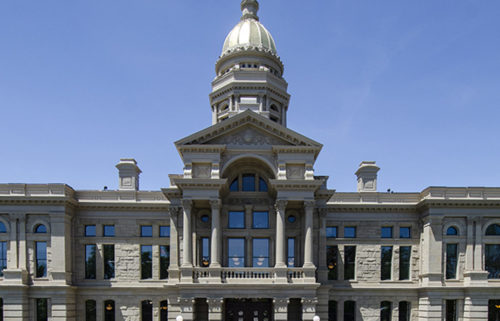Wyoming weighs changing payment system for surplus solar
CHEYENNE, Wyo. (AP) — Wyoming could join a handful of states that have begun paying homeowners and businesses less for surplus electricity from their rooftop solar panels under a bill in the state Legislature.
This bill, which passed a legislative committee Thursday, would tell state regulators to reassess how much, if anything, utilities should pay for solar power fed back onto the grid when homes and businesses produce more electricity than they're using.
Wyoming is the top coal-mining state and a major producer of oil and gas — all lifelines of the rural state's economy. Wyoming is also a net exporter of electricity, with about three-quarters of the state's power generation coming from coal-fired power plants.
Even so, the bill's sponsor, Republican state Sen. Cale Case, denied being motivated by wanting to help fossil fuel companies. The goal is to make sure that people without rooftop solar panels don't have to pay a greater share of utility costs than those who do have them, he said.
"It’s becoming a substantial part of the grid,” Case said as he introduced the bill in the Senate Corporations, Elections and Political Subdivisions Committee. “That’s what leads to it not becoming sustainable moving forward. This is not about keeping coal in business. It is not about lining utilities’ pockets. It is about making the whole system sustainable.”
But many of the dozens who testified on the bill to re-evaluate “net metering” didn't see things that way. Twenty-two years after the state adopted net metering, few homes and businesses have adopted rooftop solar and that's not about to change, some said.
“We don’t see subsidization currently occurring in Wyoming,” said Powder River Basin Resource Council organizer Claire Deuter. “We don’t see this occurring in the near future, either.”
At least two sunny states where rooftop solar has become substantial — California and Arizona — have scaled back or eliminated “net metering” benefits for homes and businesses out of concern that those without solar are paying an unfair portion of utility costs.
Wyoming homes and businesses still have a far lower rate of solar installation than in those states, however, tilting the state's net-metering argument toward solar's potential here rather than on installations to date.
So far, Wyoming has roughly 15 megawatts of small-scale solar systems, according to the U.S. Energy Information Association, equivalent to six or seven utility-scale wind turbines.
Only about 0.8% of Wyoming households have installed rooftop solar, John Burrows, Wyoming Outdoor Council energy and climate policy director, told the committee.
All the same, paying any larger share of utility costs just didn't sit well with one ratepayer.
“I don’t want to pay for people’s rooftop solar. I’m not for it or against it, I just don’t want to pay for it,” said Denise Parrish, of Cheyenne.
Wyoming has considered but decided against net metering changes in recent years. A similar bill passed the state Senate but lacked support in the state House in 2021.
Under the latest bill, all home solar installed after July 1, 2024, and all current net metering customers after July 1, 2039, would be subject to new rate regulations that would be developed by the state Public Service Commission.
The proposal heads to the state Senate for debate after passing the committee on a 3-2 vote.






